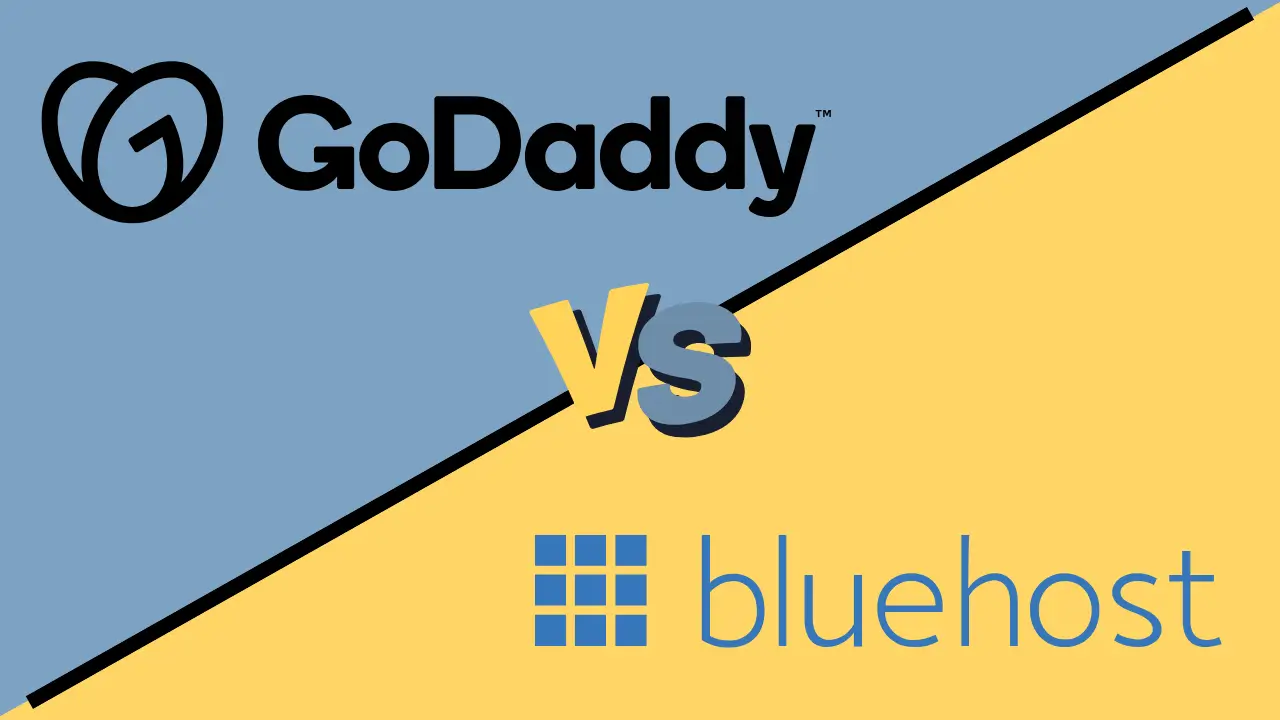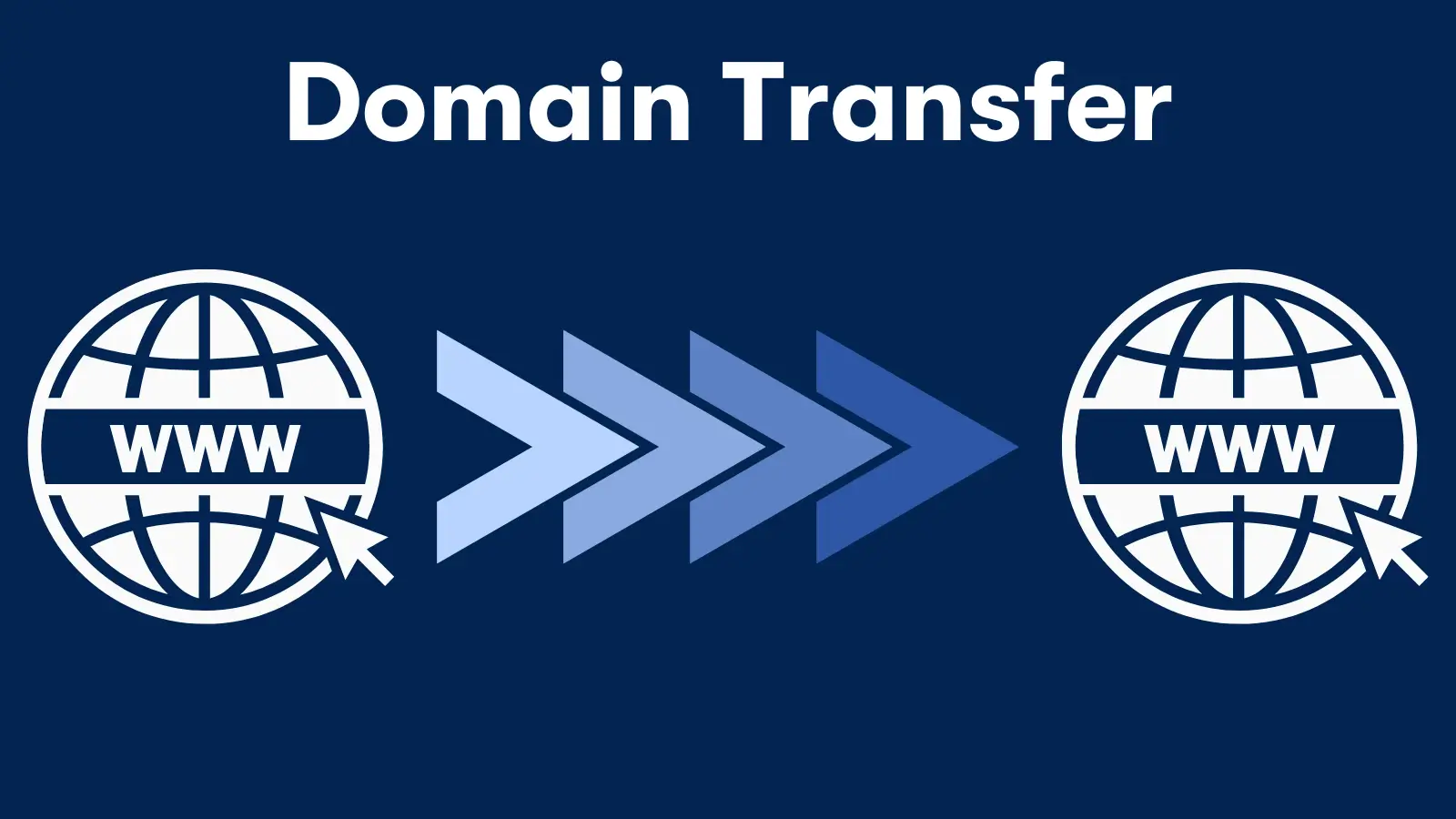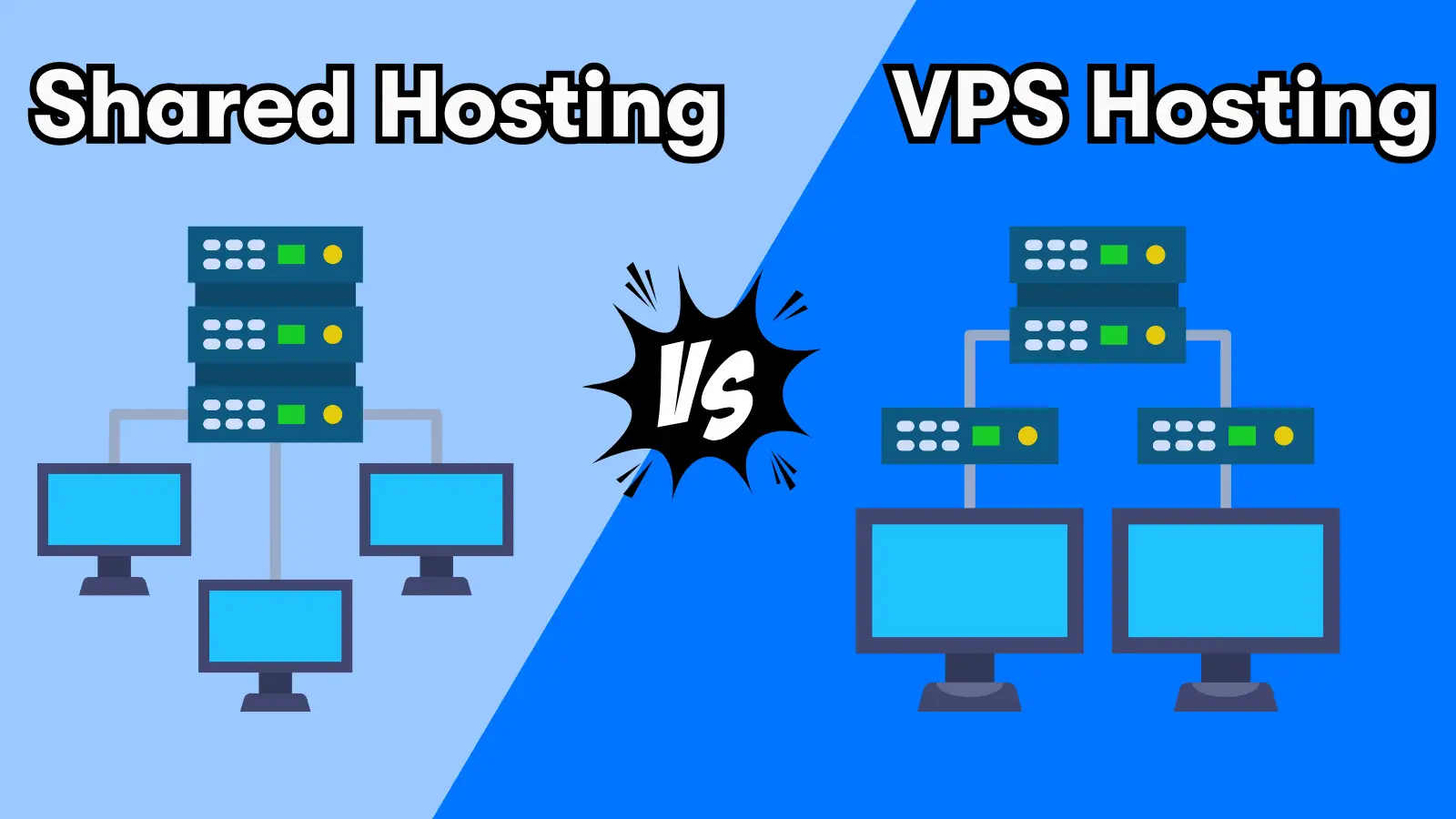Best Domain Registrars for 2025: Find the Perfect Fit for Your Site
Last updated: September 2025
Choosing the right domain registrar is crucial for establishing your presence online. Whether you're launching a new business, creating a personal blog, or setting up an online portfolio, the registrar you choose will affect your website’s accessibility, security, and overall management. This guide will help you understand the key factors to consider when comparing domain registrars, ensuring you make an informed decision that suits your specific needs.
- Mobile app to manage your website
- FREE domain for the first year
- Automated & regular data backups
- Fast, scalable hosting for any website
- Free domain for 1 year
- Dedicated 24/7 customer support
- 24/7 customer support to keep you online
- Hosting with 99.9% uptime guaranteed
- Unmetered storage for growth & flexibility
- 99.9% uptime guarantee
- Free SSL certificate
- One-click installs
- 30 day money-back guarantee
- Automatic 1-click WordPress installation
- 24/7/365 chat support
- Winners of the "Exceptional Customer Service" Stevie® Award
- Superior performance & load times
- Reliable web hosting with 99.9% uptime guaranteed
- Automatic WordPress installation
- Free SSL Certificate
- 24/7 hosting support & guidance
- 99.99% uptime guarantee
- Free SSL certificate
- 24/7 expert support
Why You Can Trust the Expertise of Sonary
At Sonary, we are committed to providing accurate and trustworthy information to help you make informed decisions. Our research process is meticulous, transparent, and guided by a dedication to maintaining the highest standards of integrity.
Unlike many other review platforms, we conduct in-depth evaluations of the software and services we feature. Our expert team tests and actively uses the tools we review to understand their features, performance, and value comprehensively. Our assessments are based on real-world use, giving you insights beyond surface-level descriptions.
Our research methodology includes analyzing key consumer factors such as pricing, functionality, device usability, scalability, customer support quality, and unique industry-specific features.
This hands-on approach and dedication to transparency mean you can trust Sonary to deliver regular, up-to-date content and recommendations that are well-researched and genuinely helpful for your business needs.
What is a Domain Registrar?
A domain registrar is a company that manages the reservation of Internet domain names. Registrars must be accredited by a generic top-level domain (gTLD) registry or a country code top-level domain (ccTLD) registry. They have the authority to assign domain names to individuals and organizations.
Best Domain Registration Providers for 2025
Wix
Wix offers domain registration directly through its platform, allowing users to purchase a domain name and connect it seamlessly to a Wix website. The process is simple, requiring only a few clicks within the Wix dashboard, and includes automatic DNS configuration for Wix users.






Features
General Features
Advanced Features
Marketing Tools
Pros & Cons
Pros
Cons
- Benefits:
- Free 1-Year Domain with Premium Plans: Users who purchase certain Wix premium plans get a free domain name for the first year, which reduces initial costs.
- Easy Integration with Wix Websites: Domains are immediately connected to Wix sites, making it effortless for users building a site within the Wix ecosystem.
- SSL Certificate Included: All Wix domains come with an SSL certificate, which helps secure customer data and improve SEO.
- Uniqueness:
- Website Builder Integration: Wix stands out as a website builder with a built-in domain registration service, making it convenient for users to get an all-in-one solution.
- Beginner-Friendly: Wix is designed for those with minimal technical skills, allowing easy domain management alongside its drag-and-drop website builder.
IONOS
IONOS offers a straightforward domain registration process, allowing users to search, register, and configure domains efficiently. IONOS supports bulk domain registration, which is helpful for businesses needing multiple domains.






Features
General Features
Advanced Features
Access
Marketing Tools
Pros & Cons
Pros
Cons
- Benefits:
- Affordable Pricing: IONOS often offers competitive introductory pricing, making it a cost-effective choice for new domain registrations.
- Free Email and SSL: New domains include a free email address and SSL certificate, helping users establish a professional online presence from the start.
- Wide Range of Extensions: IONOS supports a broad selection of domain extensions, including popular and industry-specific options like .com, .net, .tech, and .shop.
- Uniqueness:
- Focus on Security and Data Protection: IONOS provides robust security options and data protection, particularly appealing for European customers due to its adherence to GDPR standards.
- Personal Consultant: IONOS offers personal consultant support for its customers, helping users with domain registration, website setup, and ongoing technical assistance.
HostGator
HostGator provides a simple domain registration and management process, which can be done directly through its platform. Customers can quickly add domains to their hosting plans, making it easy for users already hosting with HostGator.






Features
General Features
Advanced Features
Access
Marketing Tools
Pros & Cons
Pros
Cons
- Benefits:
- Bundle Savings with Hosting Plans: HostGator often provides discounts or free domain registration with hosting plan purchases, creating value for new website owners.
- Easy-to-Use Domain Management Tools: HostGator’s dashboard offers user-friendly domain management tools, allowing users to easily renew, transfer, or update domain settings.
- DNS Management: HostGator offers full DNS control, giving users flexibility to configure settings for email, subdomains, and other domain-related services.
- Uniqueness:
- Affordable Bundling with Web Hosting: HostGator’s integration with its own web hosting services makes it a popular choice for those looking for both hosting and domain registration in one package.
- 24/7 Support: HostGator’s customer service is available 24/7, providing users with assistance for any domain-related issues at any time.
Hostinger
Hostinger allows users to register domains easily through its intuitive dashboard. Users can search for domains and register new ones, with immediate access to DNS settings and other domain management tools.






Features
General Features
Advanced Features
Access
Marketing Tools
Pros & Cons
Pros
Cons
- Benefits:
- Competitive Pricing and Promotions: Hostinger offers highly competitive pricing, often featuring discounts on popular domains like .com, .net, and country-specific domains.
- Free Domain with Select Plans: Hostinger provides a free domain with certain web hosting plans, which can be ideal for users launching a new website.
- Domain Privacy Protection: Hostinger offers WHOIS privacy protection to help keep personal information private, which is particularly valuable for small businesses and individuals.
- Uniqueness:
- Affordable and User-Friendly: Known for its budget-friendly hosting, Hostinger’s domain registration services complement its hosting plans, making it a preferred choice for cost-conscious users.
- Optimized for Beginners and Startups: Hostinger’s dashboard is designed for ease of use, making it ideal for beginners or small businesses looking to manage domains without technical complexity.
GoDaddy
GoDaddy is one of the largest and most recognizable domain registrars, offering a quick and comprehensive registration process with an extensive selection of domain extensions.






Features
General Features
Advanced Features
Access
Marketing Tools
Pros & Cons
Pros
Cons
- Benefits:
- Massive Selection of Extensions: GoDaddy offers one of the widest ranges of domain extensions, from standard .com and .net to more niche and branded options like .shop, .tech, and .photography.
- Domain Auction Platform: GoDaddy’s domain auction platform allows users to buy and sell premium domains, catering to businesses looking for high-value domain names.
- 24/7 Customer Support: GoDaddy provides round-the-clock support, which is helpful for users requiring immediate assistance with domain-related questions.
- Uniqueness:
- Established Reputation and Reliability: As a longstanding domain registrar, GoDaddy has a trusted reputation, making it a popular choice for businesses and individuals worldwide.
- Extensive Domain-Related Services: Beyond domain registration, GoDaddy offers website hosting, site-building tools, SSL certificates, and email services, making it a comprehensive provider.
Bluehost
Bluehost provides a seamless domain registration experience, especially for users purchasing hosting services. The platform’s registration process is quick, with domains easily integrated into Bluehost’s hosting environment.






Features
General Features
Pros & Cons
Pros
Cons
- Benefits:
- Free Domain with Hosting Plans: Bluehost offers a free domain for the first year with most hosting plans, making it cost-effective for new site owners.
- Simple Management and Integration: The Bluehost dashboard is user-friendly, allowing users to manage DNS settings, renew domains, and connect them to their websites effortlessly.
- Domain Privacy: Bluehost provides domain privacy options to protect users’ personal information and reduce spam.
- Uniqueness:
- Ideal for WordPress Users: As a top-recommended WordPress hosting provider, Bluehost simplifies domain setup for WordPress sites, making it easy for users to get started.
- Beginner-Friendly Support: Bluehost offers 24/7 customer support with a focus on beginner assistance, which is especially valuable for those new to web hosting and domain registration.
Domain.com
Domain.com specializes in domain registration, offering an extensive list of extensions and an easy-to-navigate registration process. Users can search for domains, view suggested alternatives, and register multiple domains in one transaction.






Features
General Features
Advanced Features
Access
Pros & Cons
Pros
Cons
- Benefits:
- Focus on Domain Services: As a dedicated domain registrar, Domain.com provides robust domain management tools and features specific to domain ownership.
- Competitive Pricing: Domain.com offers affordable rates on popular extensions, with frequent promotions on new registrations and renewals.
- Free SSL and Email Forwarding: New domains include a free SSL certificate and email forwarding, providing extra value for businesses.
- Uniqueness:
- Domain-Focused Expertise: Unlike some other providers that focus on hosting, Domain.com is dedicated to domain services, providing tailored tools and expert support.
- Extensive TLD Options: Domain.com offers a wide range of top-level domains (TLDs), including unique options such as .design, .store, and .club, which appeal to niche businesses and personal brands.
Key Factors to Consider When Choosing a Domain Registrar
1. Domain Transfer Policy
It’s essential to understand a registrar’s policy on domain transfers. Some registrars may have restrictive policies that make it difficult to transfer your domain to another provider in the future. Look for registrars that allow straightforward domain transfers.
2. Pricing and Renewal Rates
Examine the initial registration cost and the renewal rates. Some registrars may offer low introductory prices but have higher renewal rates. Be sure to check for any hidden fees such as transfer fees or charges for optional services.
3. Domain Extensions
Different registrars offer a variety of domain extensions, including traditional ones like .com, .net, or .org, as well as newer ones like .tech or .blog. Consider a registrar that offers a wide selection of domain extensions, especially if you’re looking for something more specific or unique.
4. Customer Support
Reliable customer support is crucial. Ensure that the registrar provides comprehensive email, chat, or phone support. Responsive support can be invaluable, especially if you encounter issues with your domain name.
5. Additional Services
Many registrars offer additional services like web hosting, email hosting, and privacy protection. If you are looking for a one-stop shop for all your website needs, consider a registrar that offers these additional services. However, be wary of upsells if you do not need them.
6. User Interface
The ease of use of the registrar’s website is also an important factor. A user-friendly interface for managing your domain, such as setting up redirects or modifying DNS records, can save you time and frustration.
7. Security Features
Look for registrars that offer robust security features, such as two-factor authentication (2FA), SSL certificates, and privacy protection options. These features help protect your domain from unauthorized access and cyber threats.
What Does a Domain Registrar Do?
A domain registrar is a company authorized to manage the reservation, registration, and renewal of domain names on behalf of individuals and organizations. They operate within the guidelines established by the Internet Corporation for Assigned Names and Numbers (ICANN), the governing body for domain name registration and internet protocols. Here’s a breakdown of what a domain registrar does:
1. Domain Registration
- Facilitates Domain Purchase: Domain registrars allow users to search for and purchase domain names, such as “yourbusiness.com,” from a list of available names and extensions (.com, .org, .net, etc.).
- Reserves and Registers Domains: Once a domain name is purchased, the registrar registers it with ICANN, officially reserving it for the customer for a specified period (typically one to ten years).
2. Domain Management and Configuration
- DNS Management: Registrars provide access to Domain Name System (DNS) settings, allowing users to control where the domain points (e.g., a website server or email server).
- WHOIS Database Management: Registrars submit the domain’s contact information to the WHOIS database, where it is publicly accessible. They often offer WHOIS privacy protection services to keep personal details private.
3. Domain Renewal and Expiration Management
- Renewal Notifications: Domain registrars send reminders when a domain is about to expire, allowing users to renew the domain and retain ownership.
- Grace Periods and Recovery Options: In the event of accidental expiration, registrars often provide grace periods to recover the domain before it is made available to the public again.
4. Transfer of Domains
- Domain Transfer Services: Registrars enable users to transfer domains to another registrar, should they choose. The transfer process involves unlocking the domain and providing an authorization code to the new registrar.
- Assistance with Domain Ownership Transfer: Some registrars also assist with transferring ownership if a domain is sold or transferred to another person.
5. Additional Services and Security
- WHOIS Privacy Protection: Many registrars offer privacy services to mask personal information in the WHOIS database, reducing spam and protecting user identity.
- SSL Certificates and Website Security: Registrars often offer SSL certificates to secure websites, as well as additional security options like malware protection and DNSSEC (Domain Name System Security Extensions).
- Email and Web Hosting: Some domain registrars offer complementary services, such as email hosting, website hosting, and website-building tools.
Does it Matter Who Your Domain Registrar is?
Yes, choosing a domain registrar can significantly impact your experience with managing your domain and online presence. Here are key factors where your choice of registrar matters:
1. Pricing and Renewal Costs
- Initial and Renewal Pricing: Some registrars offer low introductory prices but have high renewal rates. It’s essential to understand the long-term cost, especially if you plan to retain the domain indefinitely.
- Add-On Costs: Services like WHOIS privacy protection, email hosting, or DNS management may be included or come at additional fees. Some registrars bundle these services at lower costs than others.
2. Domain Management Tools
- User-Friendly Interface: The ease of managing DNS settings, domain forwarding, and renewals can vary widely between registrars. A user-friendly dashboard simplifies domain management, particularly for beginners.
- Advanced Features: Some registrars offer advanced DNS management, email forwarding, and SSL certificate integration, which are beneficial if you need more technical control or additional services.
3. Customer Support Quality
- Availability and Support Channels: Reliable customer support is crucial, especially if issues arise with DNS settings or domain renewals. Some registrars offer 24/7 support, while others may have limited hours or support channels.
- Expertise: The quality of support varies, and experienced support teams can provide more effective assistance, especially if you require technical guidance.
4. Domain Privacy and Security
- WHOIS Privacy Protection: WHOIS privacy protection, which masks your personal information in the public WHOIS directory, is offered by most registrars but may be included or an extra charge. Privacy protection reduces spam and enhances security.
- Security Features: Registrars may provide added security features, such as two-factor authentication (2FA), DNSSEC (Domain Name System Security Extensions), and protection against domain hijacking.
5. Reliability and Reputation
- Trustworthiness: Established registrars with good reputations tend to provide reliable services and better security. A reputable registrar minimizes the risk of issues like unexpected domain downtime or security breaches.
- ICANN Accreditation: Registrars accredited by the Internet Corporation for Assigned Names and Numbers (ICANN) adhere to industry standards and practices, providing additional peace of mind.
6. Additional Services and Bundling
- Complementary Services: Some registrars offer website hosting, email hosting, website builders, and SSL certificates, making it convenient to manage your online presence in one place. For example, if you already have web hosting with a company, registering your domain with them could simplify integration.
- Promotions and Bundling Discounts: Registrars that bundle domain registration with hosting or email services may offer cost savings, which can benefit new businesses or startups on a budget.
7. Ease of Domain Transfers
- Domain Transfer Policies: If you decide to switch registrars, a seamless transfer process is essential. Some registrars make it easier to transfer domains by minimizing fees, expediting the process, or providing customer support to help.
- Transfer Lock Policies: Good registrars have clear policies about domain locking (to prevent unauthorized transfers) and provide an easy way to unlock and transfer domains when needed.
How Much Does a Domain Name Cost?
The cost of a domain name varies depending on the registrar, the specific top-level domain (TLD), and any promotions or additional services included. Here’s a general breakdown of the current prices for some popular TLDs:
- .com: Prices typically range from $8.88 to $9.99 for the first year with registrars like Namecheap and Domain.com. Renewals might cost between $12.98 and $14.99 per year.
- .net: Initial registration fees can be around $12 to $15, with renewals costing similarly.
- .org: Costs are similar to .net, with initial registration and renewal fees usually between $12 and $15 per year.
- Other TLDs: Prices can vary more widely, with some less common TLDs being cheaper or significantly more expensive depending on the registrar and the perceived value of the TLD.
Should You Pay More for Domain Protection?
Depending on your needs and goals, paying more for domain protection can be a wise investment. Here’s why:
1. Privacy Protection:
- Benefit: Privacy protection hides your personal contact details (name, address, phone number, and email) in the public WHOIS database, protecting you from spam, identity theft, and harassment.
- When It’s Worth It: If you value privacy or are concerned about unsolicited contact, privacy protection is often worth the additional cost, especially for personal sites or small businesses.
2. Domain Locking:
- Benefit: Some registrars offer domain locking to prevent unauthorized transfers or changes to your domain settings, adding an extra layer of security against domain hijacking.
- When It’s Worth It: For high-value or business-critical domains, domain locking offers peace of mind and protects against accidental or malicious domain transfers.
3. Extended Expiration Protection:
- Benefit: This feature helps prevent accidental domain expiration by providing a grace period or backup recovery options if you forget to renew.
- When It’s Worth It: If your domain is essential to your brand or business, extended expiration protection can be beneficial, especially if you have multiple domains to manage.
How To Choose a Domain Name
Choosing the right domain providers is critical for any online venture as it impacts your brand’s identity, search engine optimization (SEO), and overall online presence. Here are some key steps to help you choose an effective domain name:
1. Keep It Short and Simple
Aim for a domain name that is short, easy to pronounce, and memorable. Short domain names are easier for users to type and less prone to errors. Avoid using slang or overly complex words that might be hard to spell.
2. Use Keywords Wisely
Incorporate keywords that describe your business and the services you offer. This helps users understand what you do at a glance but also assists in improving your SEO. For example, if you’re selling vintage clothes, you might include “vintage” or “retro” in your domain name.
3. Avoid Numbers and Hyphens
Numbers and hyphens can often be misunderstood when spoken aloud. People might not remember if you used a numeral (5) or it was spelled out (five), or they might forget or misplace a hyphen. If you must use these, register multiple variations to cover common mistakes.
4. Consider Your Brand
Your domain name should match your brand name as closely as possible. This consistency helps build your brand and makes it easier for repeat visitors to find your site.
5. Choose the Appropriate Domain Extension
While .com is the most popular and memorable domain extension, many other TLDs (top-level domains) are available, such as .net, .org, .info, and more industry-specific ones like .photography, .blog, etc. Choose one that fits your business best. Consider using a country-specific extension like .co.uk or .de if your business is localized.
6. Check for Legality and Trademarks
Before finalizing your domain name, ensure that it is not already trademarked by another company to avoid legal issues that could force you to change your site’s name down the road.
7. Future-Proof Your Brand
Think about the long-term vision of your brand. Choose a domain name that is versatile enough to grow with your business and does not limit your business to a particular product or region unless intended.
8. Test It Out
Say the name out loud and ask others to spell it based on hearing it. This can help you catch potential problems before you finalize.
9. Use Domain Name Generators
If you’re stuck, many online tools can help generate available domain names based on your input keywords.
10. Check Social Media Availability
To maintain brand consistency, check the availability of the same name across social media platforms. Having the same name across your domain and social media profiles is beneficial.
FAQ on Domain Registration
Who is the largest domain registrar?
The largest domain registrar is GoDaddy. GoDaddy manages over 84 million domains and serves millions of customers worldwide, making it the most widely used registrar.
Is domain registration the same as web hosting?
No, domain registration and web hosting are two different services. Domain registration gives you the right to use a specific domain name, while web hosting provides the server space where your website’s data is stored.
How do I check if the domain name I want is available?
You can check the availability of a domain name by using a domain search tool available on most registrar websites. Enter the desired domain name, and the tool will tell you if it’s available or already taken.
How long does domain registration take?
Domain registration is typically instant once you complete the purchase. However, due to DNS propagation, it may take 24-48 hours for the domain to become fully active on the Internet.
What does a domain registrar do?
A domain registrar is a company authorized to reserve domain names for users. Registrars manage domain name reservations, enforce domain registration policies, and provide tools for domain management.
How do you transfer a domain name?
To do so, you generally need to unlock the domain at the current registrar, obtain an authorization code, and provide this code to the new registrar. The process can take several days to complete.
What is the best way to buy a domain name?
The best way to buy a domain name is to use a reputable domain registrar. Compare prices, check for additional services like privacy protection, and read reviews to ensure good customer service.
Does it matter which domain registrar I use?
Yes, it does matter, as registrars vary in terms of pricing, customer support, additional services, and reliability. Choosing a reputable registrar ensures better service and fewer issues with domain management.
Can you permanently buy a domain name?
No, domain names cannot be bought permanently. They are registered for a specific period, usually between 1 to 10 years, but you can renew the registration before it expires.
Is there a free domain registrar?
No registrar offers domains completely free without conditions. However, some web hosting companies provide a free domain name as part of their hosting packages. Always read the terms to understand what’s included and any associated costs.
Can I buy a domain name permanently?
No, you cannot buy a domain name permanently. Domain names are typically registered on a yearly basis, with options to renew for multiple years (often up to 10 years at a time).
Who owns a domain legally?
Legally, the domain owner is the person or entity listed as the Registrant in the WHOIS database. This is typically the individual or business that registers the domain through a domain registrar. While the registrar manages the domain’s registration, the registrant holds the right to use and control it as long as it remains registered and renewed under their name.
How to check who owns a domain?
To check who owns a domain, you can perform a WHOIS lookup. Here’s how:
- Go to a WHOIS Lookup Tool: Use a reputable site like whois.net, ICANN WHOIS, or your preferred domain registrar’s WHOIS tool.
- Enter the Domain Name: Type in the domain you want to look up and run the search.
- Review the WHOIS Results: The results will display information about the domain, including:
- Registrant’s Name (if not protected)
- Registrar Information
- Registration and Expiration Dates
Can someone take my domain name legally?
Yes, someone can legally take your domain under certain conditions. If you fail to renew it, the domain will expire and become available for others to purchase. Additionally, if your domain closely matches a registered trademark and you’re found to be infringing or using it in bad faith, the trademark holder may claim it through ICANN’s Uniform Domain Name Dispute Resolution Policy (UDRP).
What is a reasonable price for a domain name?
A reasonable price for a domain name typically ranges from $10 to $20 per year for standard extensions like .com, .net, or .org. Premium or highly desirable names may cost significantly more, especially if they are short, brandable, or contain popular keywords.
Why is domain renewal more expensive?
Domain renewal is often more expensive than the initial registration due to promotional pricing strategies that registrars use to attract new customers. The first-year discounts make domains affordable initially, but after the promotion period, renewals revert to the standard rate, which covers ongoing costs for domain management, registry fees, and customer support.





